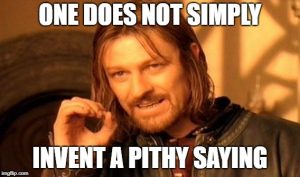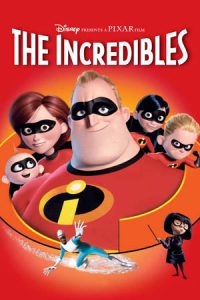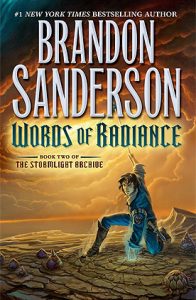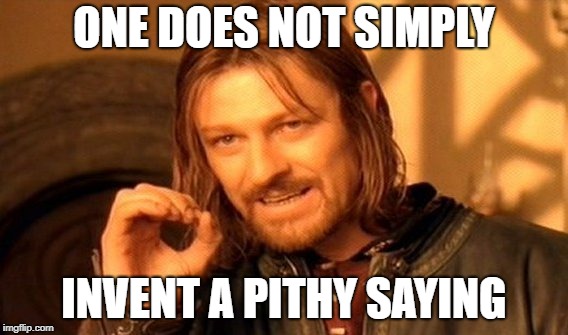Writing and editing advice are full of pithy phrases like Show Don’t Tell, Said Bookisms, or White Room Dialogue. Unfortunately, I have yet to come across a popular saying to describe the best piece of writing advice I’ve ever heard:
Every sentence should serve multiple purposes.
Frankly, you could probably extend this to a meta level and say that everything you write should serve more than one purpose. But for now, we’ll start with the sentence level. With every single sentence you write, you should be striving to have it do more than one thing. A piece of dialogue can tell us how the speaker is feeling. A scene description can teach us about the character’s background and interests. An action sequence can serve as foreshadowing. And so on and so forth.
For the purposes of this blog post, I’ve decided to call this Double Duty Writing. And at a basic level, you should be looking for ways to help your sentences accomplish two goals at once. But, of course, if you can get more than two purposes, go for it! The more functions you can fit in each sentence, the more rich and fulfilling your writing will be.

Why Double Duty?
I tend to ascribe to the transparent prose school of writing. While some authors, like Patrick Rothfuss, write beautifully poetic prose, my very favorite authors tend to be those who are more straightforward. And yet, their transparent prose can still be categorized as double duty writing. So I’m not saying you have to be a poet and agonize over the placement of every word. But when you are working on your second (or third or fifth, but not first) draft, I encourage you to take a close look at your sentences and look for ways to help them pack more of a punch.
Why? Because it will make your writing both richer and more to the point. Many authors (myself included) tend to overwrite. And for a first draft, that’s perfectly fine. But you’ll want to trim the fat in later drafts. And a perfect way to do that is to take things you’ve described at length and condense them into double duty sentences.
The more functions each sentence serves, the more you will convey to your reader without losing their interest. More information packed into one sentence will help you not strain your reader’s attention span. That being said, you don’t want your writing to become so dense that it takes 15 minutes to unpack one sentence. So find the middle ground!
I’m going to provide two examples of double duty in action, in both dialogue and description.
Double Duty Dialogue In Action
In a lot of ways, dialogue is the main driver of plot in a novel, and especially of character development. In fact, a lot of dialogue just naturally pulls double duty. It moves the plot forward and teaches us about the characters. But if you really want to make the most of it, you should scour your dialogue for ways you can make it do even more for you.
I re-watched The Incredibles this week (need I say again that it’s my favorite Pixar movie?). Among the many things I love about this movie, this time through I particularly noticed how rich the dialogue is. This scene in particular stuck out in my mind:
[kad_youtube url=”https://www.youtube.com/watch?v=Zh2-rVsXWUU” ]
These lines:
FROZONE: It means it’s hot! And I’m dehydrated, Bob!
MR. INCREDIBLE: You’re out of ice? You can’t run out of ice! I thought you
could use the water in the air!
FROZONE: There is no water in this air! What’s your excuse, run out
of muscle?
Double Duty Dialogue Analysis

Oh man, so good. So, what purposes did these lines serve? They:
- Taught us about how Frozone’s powers work
- Answered a potential viewer/reader question as to why Frozone didn’t just put out the fire
- Kept the pacing fast and tense
- Showed the relationship between the characters—they know each other well and bicker like all friends do. I particularly like the “Bob” Frozone throws in. Saying someone’s name in frustration is a perfectly natural thing people do when they are annoyed.
Setting this exposition about Frozone’s powers in the context of an argument was the perfect way to avoid “maid and butler dialogue” (there you go again, another pithy saying I should address soon). If Frozone and Mr. Incredible had just been sitting in the car talking about Frozone’s powers, it wouldn’t have made any internal sense. Sure, it would have taught the viewer about the powers. But it wouldn’t have been a natural conversation for two long-time friends who clearly understand each other’s powers to have. The tense situation and the ensuing argument provided an opportunity to get the information out there to the viewer in a way that fit perfectly with setting and characters.
And the scene comes full circle in just a minute and a half, when Frozone oh-so-slowly gets his drink from the water cooler to re-hydrate himself and provide their means of escape from the police officer. So many pieces of the story moved forward in so few lines.
Double Duty Description In Action
Brandon Sanderson is one of the authors I’d include in my transparent prose school. His writing is straightforward and engaging. The words are simply a window into the world that you can then poetify as much as your imagination cares to. So I’m going to use a snippet of his Words of Radiance (pp. 92-93) to show double duty description in action (spoiler alert, this excerpt is from the beginning of the second book in the series, so if you are planning to read Way of Kings anytime soon, you might want to skip this section!):
The chamber beyond the doors was decorated with a thick rug and large unshuttered windows on the leeward side. Kaladin had never been in this room, and the palace maps—for the protection of the king—only included the basic hallways and routes through the servants’ quarters. This room had one other door, probably out onto the balcony, but no exits other than the one Kaladin stepped through.
Two other guards in blue and gold stood on either side of the door. The king himself paced back and forth beside the room’s desk. His nose was larger than the paintings of him showed.
Dalinar spoke with Highlady Navani, an elegant woman with grey in her hair. The scandalous relationship between the king’s uncle and mother would have been the talk of the warcamp, if Sadeas’s betrayal hadn’t overshadowed it.
Double Duty Description Analysis

I appreciate that this excerpt sets the scene right off the bat. We get enough of a description of the room for us to visualize the setting and the characters before the conversation begins and the plot progresses. So what else does this description do?
- It shows us Kaladin’s character as a diligent bodyguard—he’s studied the maps of this room and is actively comparing the maps to the reality. His assessment of the room, its exits and windows, is crucial to his job.
- We get a sense of the king’s personality. He is pacing, which implies nervous energy. The discrepancy between the paintings and the real nose hints at a certain vanity. And the fact that Kaladin comments on those aspects hints at the guard’s opinion of the king.
- The last sentence is a beautiful introduction of two important plot elements: Dalinar and Navani’s relationship and Sadeas’s betrayal. Note that comparisons like this are an excellent way to write a double duty sentence. By comparing two events, we are not only reminded of those two events, but we can put them in context through the POV character’s eyes. Here we are given further insight into Kaladin’s mind. He classifies the relationship as scandalous, but scandal is clearly not as important to him as betrayal is.
A major element of double duty description is to make sure the POV character is influencing what gets described. Kaladin’s personality and job description are inextricably woven into his analysis of the scene. And this exact same scene as seen through the eyes of one of the other characters should read entirely differently. The artist will see things the warlord overlooks, and vice versa.
Double Duty is for Later Drafts
I mentioned above that this advice about double duty writing is meant for looking at later drafts of your novel. I really don’t want you to fret about double duty writing in a first draft when you’re just getting the words out there. If some way to write several purposes into one sentence occurs to you as you’re writing the first draft, of course you should include it. But don’t let worrying about double duty impede your writing progress.
This advice is meant for the editing stage. Primarily the line editing stage. When you’ve got your story set, your plot is solid and your characters developed, then you can go back and make your sentences stronger. Make each sentence serve multiple purposes.
You may find that your double duty sentences have transformed your book into a story that will change a reader’s life.
And that is your ultimate duty.


I love this post, Bonnie! I’ve been thinking about this a lot recently, too, finding it come up in a lot of editing projects. May I post it on my Facebook page?
Definitely! I find it comes up a lot in editing as well. I’m glad you found it useful 🙂
Hi Bonnie,
I’m so glad I found out about your website. All the books/et cetera you mention are unfamiliar to me, (except “The Incredibles”. Everyone had seen that!)
Now I realize I have a load of catching up to do and it will be a lot of fun!
Hi Rhenna,
Glad you like it! I hope you enjoy the new books and things 🙂 The Incredibles is amazing!